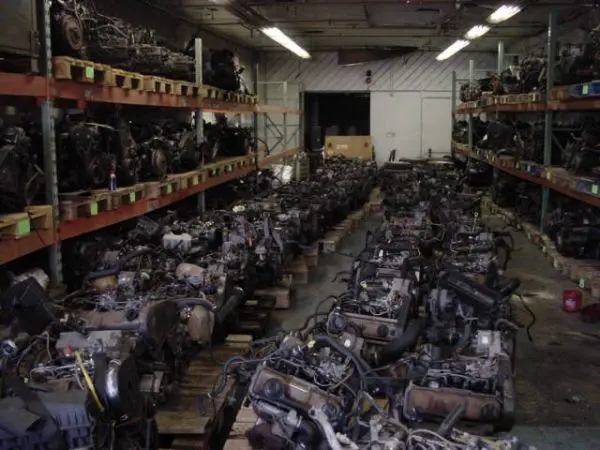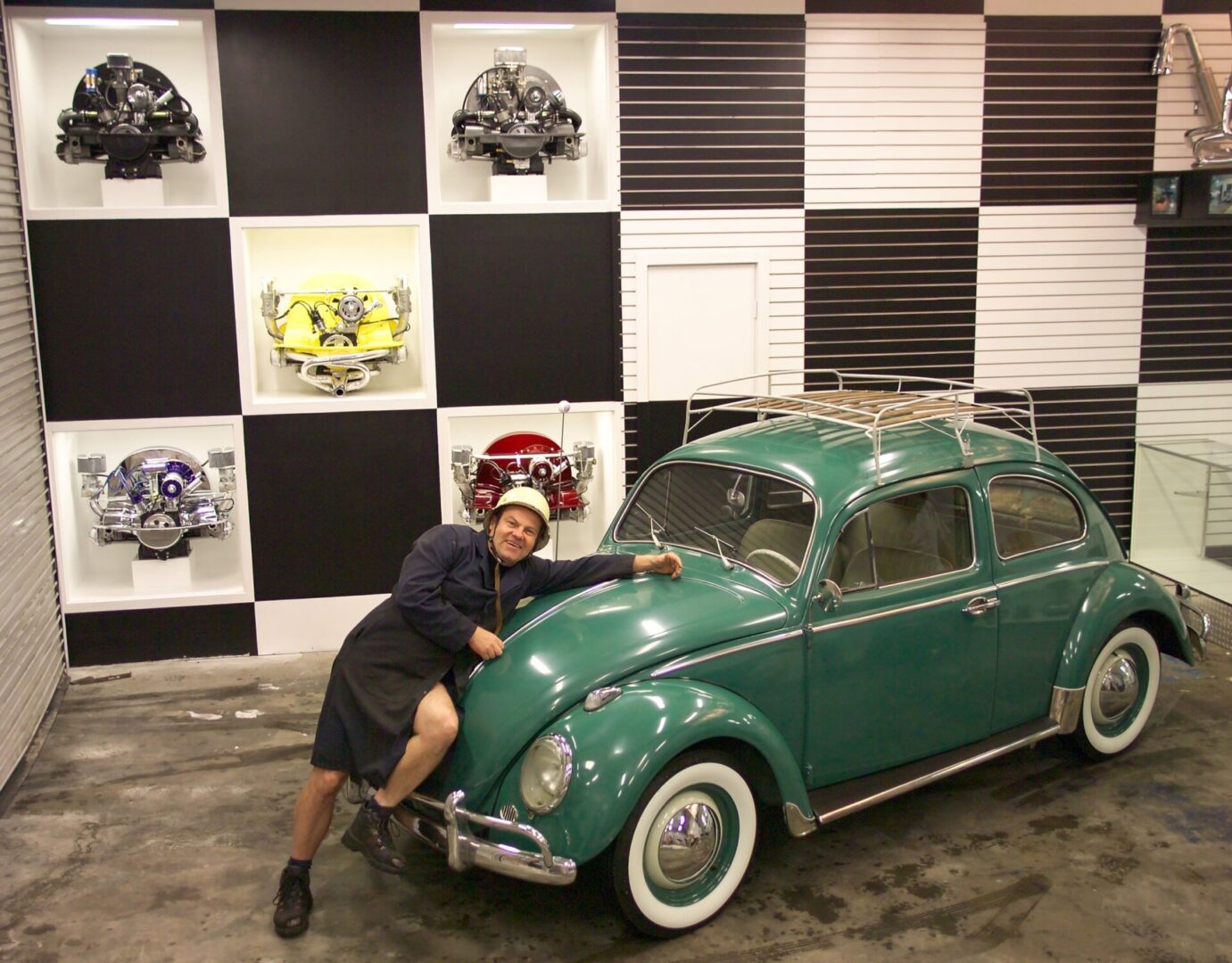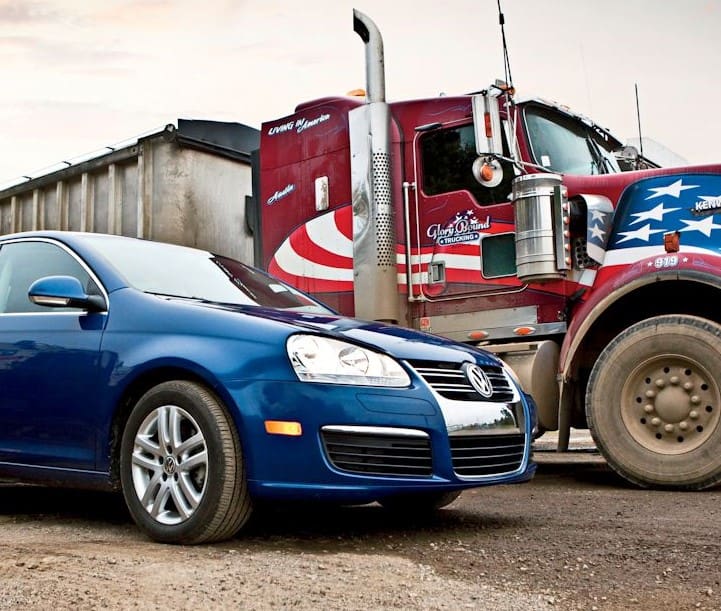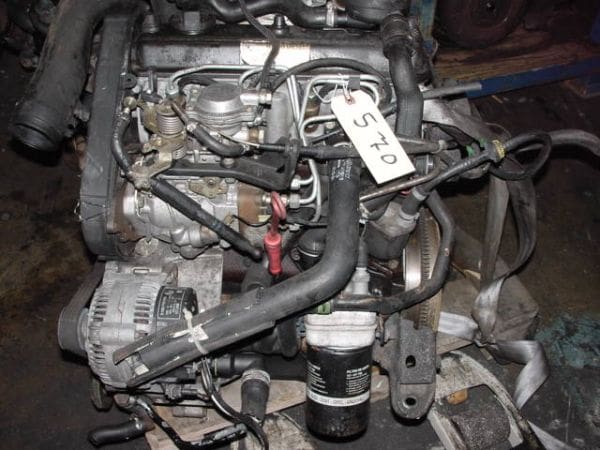
Which vw diesel is right for Your Conversion or install?
"What is the best Diesel engine for me?" It's a question we hear constantly, there is no easy answer. In this summary, we'll attempt to explain the positives and negatives of the various VW engines. Please take this with a grain of salt, as our observations are influenced by our personal driving habits, and experience with installs in various Vehicles. We also receive a lot of feedback from customers and shops that install these engines. It is worth noting that we personally drive most of the cars before taking the engines, transmission, parts, or conversion kits out of the vehicles in Germany.
A Diesel Conversion May Not Be Suitable for Everyone
The diesel engine is approximately 30 to 60% more efficient than the gas engine. If you only drive your Syncro Westy 5000 miles a year and you're content with the power of the gas engine, why undergo the conversion?

How Much Power Do I Need?
The Diesel engine is most efficient at 50 to 70% throttle. By examining the power curve of the VW Diesel or Turbo Diesel engine, you will notice how steep the torque curve comes up and then goes down. Whereas the HP curve still ascends. You will get the most value if you stay at or around peak torque. The Diesel engine uses a specific amount of fuel for each HP it produces, so purchasing an engine with a nice power reserve for your needs is essential. Questions call 760-241-9504 Thomas the owner (in the photo, BACK IN THE DAY!) is available to provide direction, advise and experience in making the proper choice.
Indirect Injection vs. Direct Injection
In the indirect injection Diesel engine, the fuel goes into a pre-chamber and the combustion chamber. The fuel efficiency of a VW IDI engine is 264 g/kwh. They come in both natural aspirated (D) and turbo versions (TD). These engines are admired for their simplicity. They suffer from higher fuel consumption, generating more heat and thus lowering efficiency. On the other hand, the direct-injected Diesel engine was initially used in large trucks and ships. The diesel goes directly from the injector to the combustion chamber with the piston having a protrusion with a dome in the center. This design enhances the air-diesel mixture in the combustion chamber, achieving a better mix of air and diesel. The injection pressure is significantly higher in the direct-injected engine. VW achieved 25% more efficiency with the TDI and SDI engines. The fuel efficiency of the VW Direct Injected engine is 207 g/kwh. This also means a lot less heat goes into the radiator. You can observe this clearly when you compare the radiator of a Golf 2, a 1.6 TD engine, with the radiator of a Golf 3 with a 1.9 TDI engine. The direct-injected engine is available in both natural aspirated (SDI) and turbo (TDI) versions. VW introduced the first generation TDI car engines in 1993. The engine codes were 1Z/AHU (90 HP) and AFN (110 HP). I believe this is the best engine for a conversion. It shares the same block and oil pan as the earlier indirect injection engines. The later TDI engines ALH (90 HP) and AHF (110 HP) have a different block and oil pan.
The drawback of the TDI engine is the complexity of the wiring harness, computer, and sensors, making it challenging for most shops and home mechanics to install.
Then came the M-TDI. You remove the electronics from the injection pump and use the top parts of the TD pump, giving you the best of both worlds. Yes, the M-TDI engine loses some of its efficiency, but it's still much better than the indirect-injected engine. The problem was primarily the price of the pumps (approximately $1200 for a USA-made pump or $300 for a Chinese copy) and the timing setup. This required a lot of trial and error, and the customer was left to figure it out on their own. We decided to invest in an engine DYNO and hired an American company to handle the pumps for us. Now, you can purchase an M-TDI engine that has the pump installed with a new belt and tensioner. The engine is set up and dialed in on our DYNO. You can watch a video of each engine running and get a printout of the HP (75 to 95 HP) and Torque (145 to 200 ft. lbs.) it produced.
Now, you can purchase an M-TDI engine that has the pump installed and is dialed in. This removes the guesswork on your end. Each of our M-TDI engines comes with a video and a dyno sheet.
REAR WHEEL DRIVE VS. FRONT WHEEL DRIVE:
All VW and Audi cars are front-wheel drive. There are adaptors for many rear-wheel-drive cars. Samurai, Toyota Pickup, and other cars would greatly benefit from a fuel-efficient diesel engine. So, we looked around in Germany and found many nice engines for those cars. However, this posed a spare parts issue. Therefore, we decided to start importing the Mercedes OM 612 engine. This engine was used in the Mercedes Sprinter (also sold as Dodge and Freightliner Sprinter). It is an inline 5-cylinder 270 CDI engine with a VNT Turbo. CDI stands for common rail direct injection. The engine has 2700cc (2.7 L), 170 Hp at 4200 RPM, and 295 Ft. Lbs of Torque between 1800 and 2800 RPM. It comes with an automatic or manual transmission. Feel free to call us to discuss this further at
(760) 241-9504.

VW 1600 Diesel Natural Aspirated Engine
VW introduced the 1.6 Diesel engine in 1981, featuring 50 HP and was used up to 1985. Very hard to find in Germany. If you find one here GRAB IT! In 1986 VW upgraded the 1.6 engine to hydraulic lifters. Increasing the power to 54 HP and the Torque to 74-foot lbs. at 2300 to 2900 RPM. This engine works well for small boats or stationary engines. Most often chosen for the VW Rabbit or Rabbit pickup. Nice for around town or for very moderate driving. However, it's worth noting that these engines are quite slow. In 1981 and 1982 some Vanagons were sold with this engine, but most were converted due to lack of power. This engine is primarily for the environmentally conscious or those driving leisurely to church on Sundays.
VW 1900 Diesel Natural Aspirated Engine
VW Diesel 1900 is the naturally aspirated version of the famous AAZ engine. The engine code is 1Y. It was first introduced in 1990 in the Passat and was used up to 1997 in almost every VW. The block is quite similar to the 1.6 Diesel. All the mounting holes are the same. The block is a bit taller than the 1.6 (VW 1600 Diesel). The engine has a reputation in Germany as "nicht kaputt zu bekommen," which means indestructible. The engine is rated at 68 HP (4400 RPM) and 94 pounds of Torque (2000-3000 RPM). This engine has a broad power band and is ideal for lighter cars. You can transfer the exhaust and intake manifold from your 1.6 Diesel to this engine. Everything will look like stock. This engine works very well with the Samurai, you will need to modify the intake manifold or use the one from the gas engine. The stock intake manifold will hit the hood. This engine is sufficient to keep up with traffic in a Rabbit, Rabbit Pickup, Golf, or Jetta. It is underpowered in mountainous areas, heavy cars, or for fast drivers. Many of our Rabbit Pickup customers enjoy this engine as a direct, hassle-free replacement for their slow 1600 Diesel.


1600 Turbo Diesel ECO Version
VW introduced this engine in 1989 with the engine code 1V. It was sold in large numbers in Germany and the rest of Europe, designed to deliver excellent gas mileage. It does not have a boost valve on top of the injection pump. It always burns 100% of the fuel. The turbo (K14) was small, minimizing turbo lag (the engine has to rev up to generate enough exhaust pressure to spin the turbo). The engine was rated at 60 HP with a catalytic converter. The engine generates approximately 65 HP (4500 RPM) and 90-foot lbs. of Torque (2400-2600 RPM) without the catalytic converter. This engine works well in a Suzuki Samurai with stock tires and street use. It's also a good starting engine for the Rabbit, Rabbit Pickups, and Jetta.
1600 Turbo Diesel with 70 HP
The engine code is JR. The engine was sold in the USA with the engine code MF. Some of the old-timers favor this engine because they never had a chance to drive some of the European engines. This engine has the load enrichment valve on top of the pump, injecting extra diesel when the turbo builds boost. The engine came with 69 HP and 98-foot lbs. of Torque at 2500 RPM. The engine is easily tuned. The downside is the big turbo (Garrett T3). That was the downfall of this engine in Germany because German drivers never liked the significant turbo lag of this engine, in addition to its higher fuel consumption. This engine works well for people who enjoy the sensation when the turbo finally kicks in. You can feel some power there, but that's about it.
1600 TD High Output
The engine code is SB/RA. This engine had 80 HP with the help of an even bigger water-cooled turbo (Garrett T2) and an intercooler. It came in the Golf GTD and, for a short time, in the Passat. It was the diesel version of the famous Golf GTI. It is a very powerful engine for sporty drivers but with the same shortcomings as the 70 HP version.
1900 TD Engine
This is the famous AAZ engine, probably one of the BEST TD engines VW ever made. It has 75 HP and 114-foot pounds of Torque at 2200 to 2800 RPM. The only engine better for conversions is the 1900 M-TDI engine. The engine came with a very small turbo (KO3/K14), resulting in very little turbo lag. The engine is capable of much more power (around 80 HP) with the help of an intercooler. Some achieve over 100 HP. Most of these engines came with a serpentine belt setup. This is the smallest engine that will work with an AC. Several different injection pumps are used on this engine, but they all make 75 HP. This engine is perfect for the Suzuki Samurai conversion and for Rabbits, Golfs, and Jettas. This engine has been used in other conversions throughout the years. After all, it is VW.
This complete used engine is becoming harder to find with low miles. We now offer to go through the engine and install new bearings, rings, head gaskets, and seals. We also recommend going with a new turbo. If you don't see an engine listed please call 760-241-9504. You can be put on the waiting list.

M-TDI: USED
As you can tell by now, this is MY FAVORITE ENGINE. The engine we are using for this conversion is 1Z/AHU Style. They had 60,000 to 90,000 miles when they were removed from cars in Germany. Coming from Germany means that the engines have rust and aren't pretty. We do clean the engines as thoroughly as we can, but they still may not be the prettiest. We are using a hybrid pump that is rebuilt for us here in the USA. We made a lot of changes to the pump to make the engine run properly. All the parts we are using in the pump are Bosch. It is no problem to have the pump rebuilt at a reputable Bosch pump rebuilder if you ever feel the need to do so in the future. We also install a new German timing belt, both new German tensioners, new German water pump, new German thermostat, and Bosch glow plugs.
The engines make 150 to 170 Ft. Lbs. of Torque at around 2200 RPM. We can make more power with a higher boost or bigger nozzles; just let us know your preference. The original engine makes 145 Ft. Lbs. of Torque between 1900 and 3000 RPM, so our engine makes more power, but the power band is not as wide because we cannot change the internal pump timing as the computer does. This engine starts at $4,000.00 with a 3-month warranty.
Update 5-8-21: Used TDI engines that are running very well are becoming harder to find due to the age of the vehicles. We recommend that you upgrade to a reconditioned M-TDI with a new turbo.
Reconditioned M-TDI
We take one of our used engines, inspect and hone the block, paint the block, and install new main and rod bearings, rings, head gaskets, head bolts, water hoses, belts, gaskets, and seals. All the replacement parts are made in Germany or the EU. New German timing belt, both new German tensioners, new German water pump, new German thermostat, and Bosch glow plugs. This engine starts at $5,000.00 with a 3-month warranty.
Update 5-8-21: We strongly recommend upgrading to a new turbo.
Like New M-TDI
We start with a low-mileage used engine. We take it apart, clean, paint, bore the block, and install new oversize Kolbenschmidt pistons and rings. Install new main and rod bearings, head gaskets, head bolts, water hoses, belts, gaskets, and seals. The crank is micropolished or machined. The rods are rebuilt. The head is rebuilt, and the turbo is NEW. The flywheel is resurfaced. We install new intermediate bearings and a new harmonic balancer, German timing belt, German water pump, German thermostat, and Bosch glow plugs. This engine starts at $6,500.00 with a 6-month warranty.
